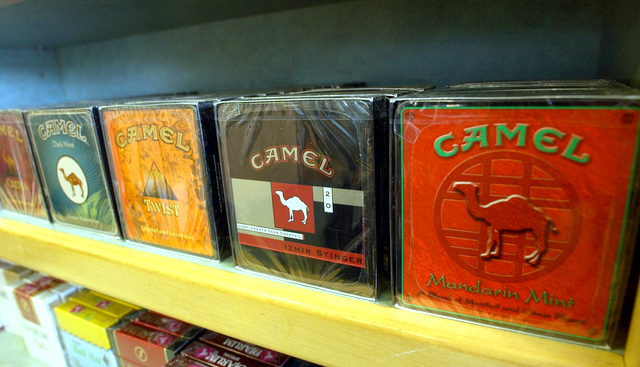
BY EMILY MIBACH
Daily Post Staff Writer
San Mateo County Supervisor David Canepa yesterday (Jan. 22) said he made a “rookie supervisor’s mistake” in not seeking feedback from shop owners who would be affected by a proposed ban on the sale of flavored tobacco in unincorporated areas of the county such as North Fair Oaks.
Canepa said he will request to continue today’s discussion of whether the county ought to ban the sale of flavored tobacco to a future meeting in order to speak with opponents of the ban and work out a compromise of some sort.
Canepa, a former Daly City councilman who was elected in November 2016 to represent the north county, said he has been working on the ban for months with county health officials, but “put the cart before the horse” and didn’t meet with the small business owners who would be greatly affected by the ban.
Law would apply to 34 shops
According to Jaime Rojas, a spokesman for R.J. Reynolds-funded pro-tobacco group Let’s Be Real California, the ordinance would apply to 34 shops in the unincorporated part of the county, and could reduce their annual revenue by 25% to 35%.
“We don’t survive on the $300 transactions, it’s the $2 to $10 sales to our regulars,” said Miriam Zouzounis, a board member with the Arab American Grocers Association, who grew up partly in San Mateo County and runs a corner store in San Francisco.
Zouzounis said if stores stop selling someone’s preferred type of tobacco, then that person, usually a blue collar worker with a short break time, will stop coming to the store.
“We will no longer be the place he comes to visit to buy the rest of his things, the drinks, the candy bars, so it takes away not just that sale (of tobacco), but also the entire sale,” Zouzounis said.
Canepa said he’s sympathetic to the small business owners, but said they can sell other tobacco products, they just can’t be flavored.
“I get it, but at the end of the day, it affects their pocket books and I have a greater responsibility to look after the health of the general population,” Canepa said.
‘Interesting’ flavors
Canepa’s report to the rest of the board also says the ban is to prevent youth smoking, which has been steadily decreasing in the country, according to the Centers for Disease Control and Prevention.
Canepa pointed to the “interesting” flavors, such as banana, that are likely targeted toward children.
His proposed ordinance says that every day about 2,500 children in the U.S. try their first cigarette, and 400 become regular smokers. The ordinance cites a survey saying that 81% of youth report the first cigarette they tried was flavored.
But Zouzounis rebukes the idea that it’s the corner stores who are supplying the youth with these products.
“A lot of these stores are owned by families who don’t want their kids exposed to these items either,” Zouzounis said.
Zouzounis said that these corner stores are targeted by sting operations to see if the stores card customers, and it seems to her that people are more interested in criminalizing transactions at stores often owned by immigrants and Arab Americans, than being concerned about kids getting their hands on tobacco.
She suggests that instead of the ban, perhaps look at the nonprofits who are responsible for keeping tobacco out of the hands of the youth and see how accomplished they are.
Canepa said he plans on sitting down and discussing the proposed ban with the stores and the anti-ban groups to come to an agreement regarding the ordinance.



